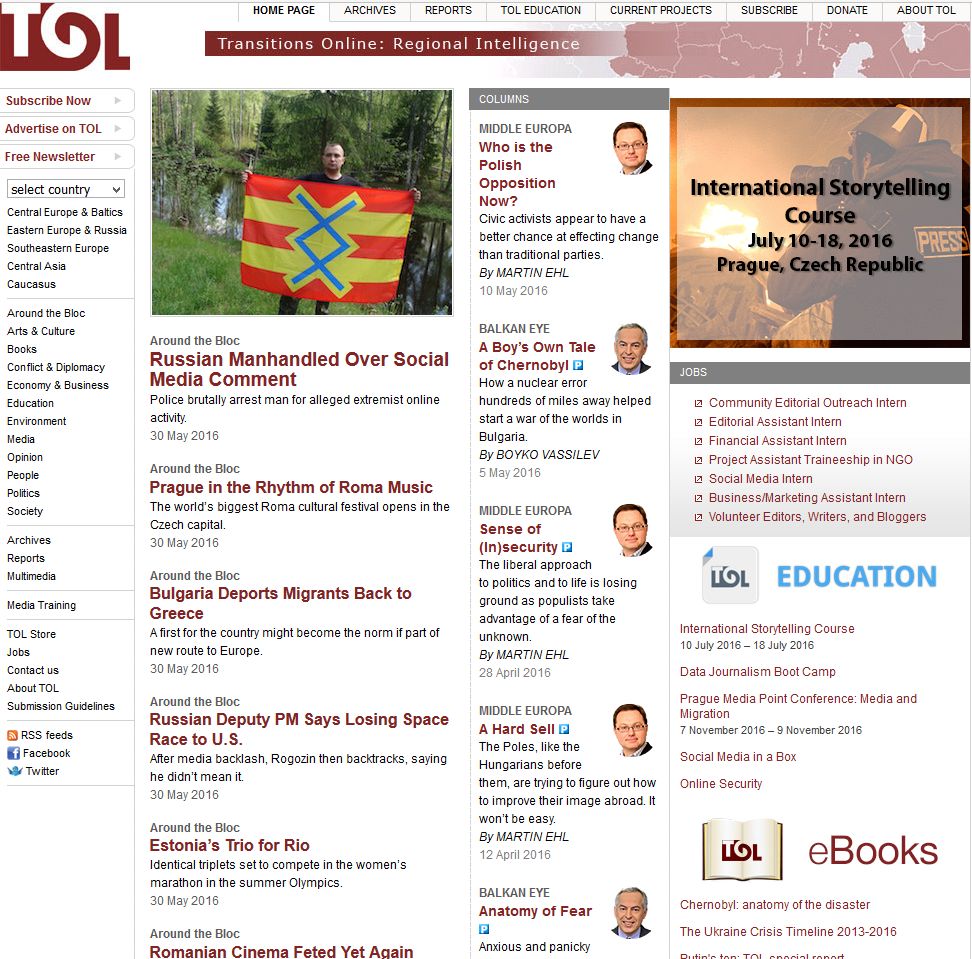
Around the bloc: Czech ‘Bloc Against Islam’ Leader Charged With Hate Speech
Far-right group leader’s lawyer says he is accused of inciting hatred against Muslims via Facebook posts.
More...We kindly inform you that, as long as the subject affiliation of our 300.000+ articles is in progress, you might get unsufficient or no results on your third level or second level search. In this case, please broaden your search criteria.

Far-right group leader’s lawyer says he is accused of inciting hatred against Muslims via Facebook posts.
More...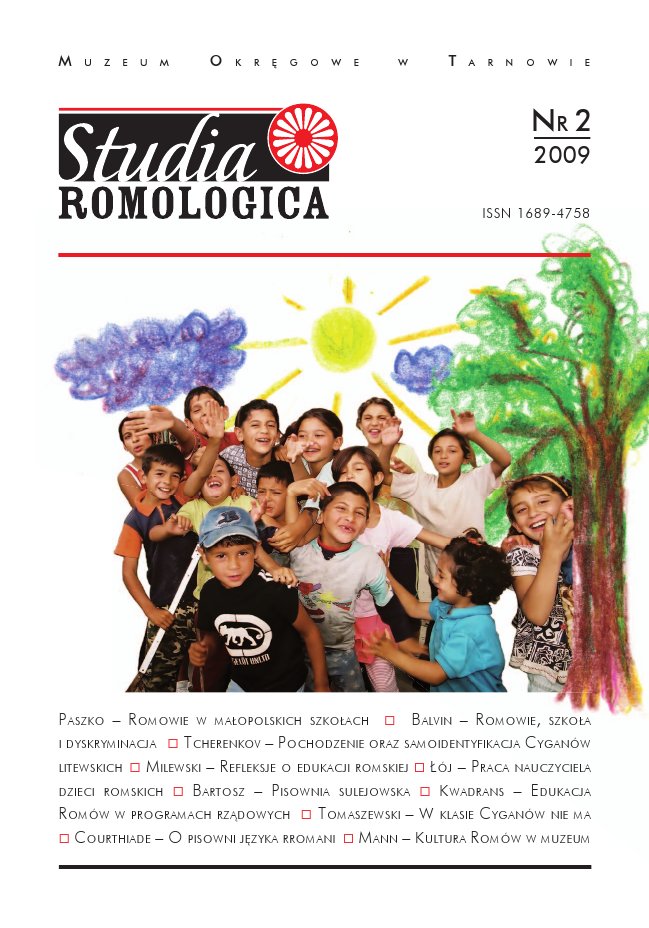
The author attempts to compare the governmental programs for the Roma community in Czech, Poland and Slovakia. He is particularly interested in how these three countries perceive the role of education. All of the three programs include the educational component, as clearly pointed out by the author. Also, the position of the Roma Assistant has been introduced in all the countries. It is important since the education of Roma community has become a priority and the efforts of governments and European institutions as well as NGOs towards improving the educational and social situations of the Roma have been coordinated.
More...
(A polemics with Michael Stewart’s article Remembering without commemoration:the mnemonics and politics of Holocaust memories among European Roma, “Journal of Royal Anthropological Institute” nr 10, 2004) In the recent years the traditional approach to Roma as „people without history and memory” has been challenged, among others, by a new perspective that assumes that even if Roma do not consciously reflect upon their past, the past is „remembered”for them due to the fact that it is in a way „stored” or „embedded” in the nature of the relations between Roma and non-Roma. Such an „implicit memory” approach, represented by Michael Stewart, means a step forward since it has assumed a more sophisticated concept of social memory. Nevertheless, it shares with the older approach the essentialized concept of Roma identity. With a help of Lech Mroz’s conception of Romani „non-memory that does not mean forgetting”, I am developing mycriticism of Stewart’s argument as (1) treating the Roma as a passive and static group formed by external determinants; (2) homogenizing the diversity of Romani life; (3) presenting a monolithic picture of the non-Roma world; (4) seeing a firm borderline between Roma and non-Roma while we should rather speak here of a liminal frontier zone; (5) neglecting the actual cases of active remembrance among Roma, supported by Romani commemorative ceremonies. In the end, I am suggesting that in contemporary „postmodern condition” the Romani practices of memory and identity do not radically differ from the non-Romani ones, especially those influenced by traumatic historical experience.
More...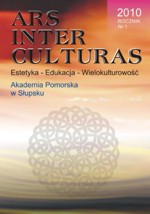
Das Dilemma einer globalen Verwicklung der Welt führt zu einer Reflexion über den Charakter der zeitgenössischen Globalisierung und Möglichkeiten der Anpassung eines Menschen an eine neue, ambivalente und unsichere Realität. Die in diesem Artikel aufgenommenen Überlegungen konzentrieren sich auf einen Versuch, die Postmoderne und die Konditionen des heutigen Menschen, der sich auf einem Weg der Suche nach seinem festen Ort in einer sich ständig verändernden Wirklichkeit befindet, zu charakterisieren. Das metaphorische Bild eines Menschen, den wir immer als ein suchendes Individuum betrachten, erweckt die Hoffnung auf eine innovativ orientierte Suche nach der Identität in einem dialogischen Zusammenleben mit dem „Anderssein“ und der Wiedererfindung im Sinne einer eigenen Existenz.
More...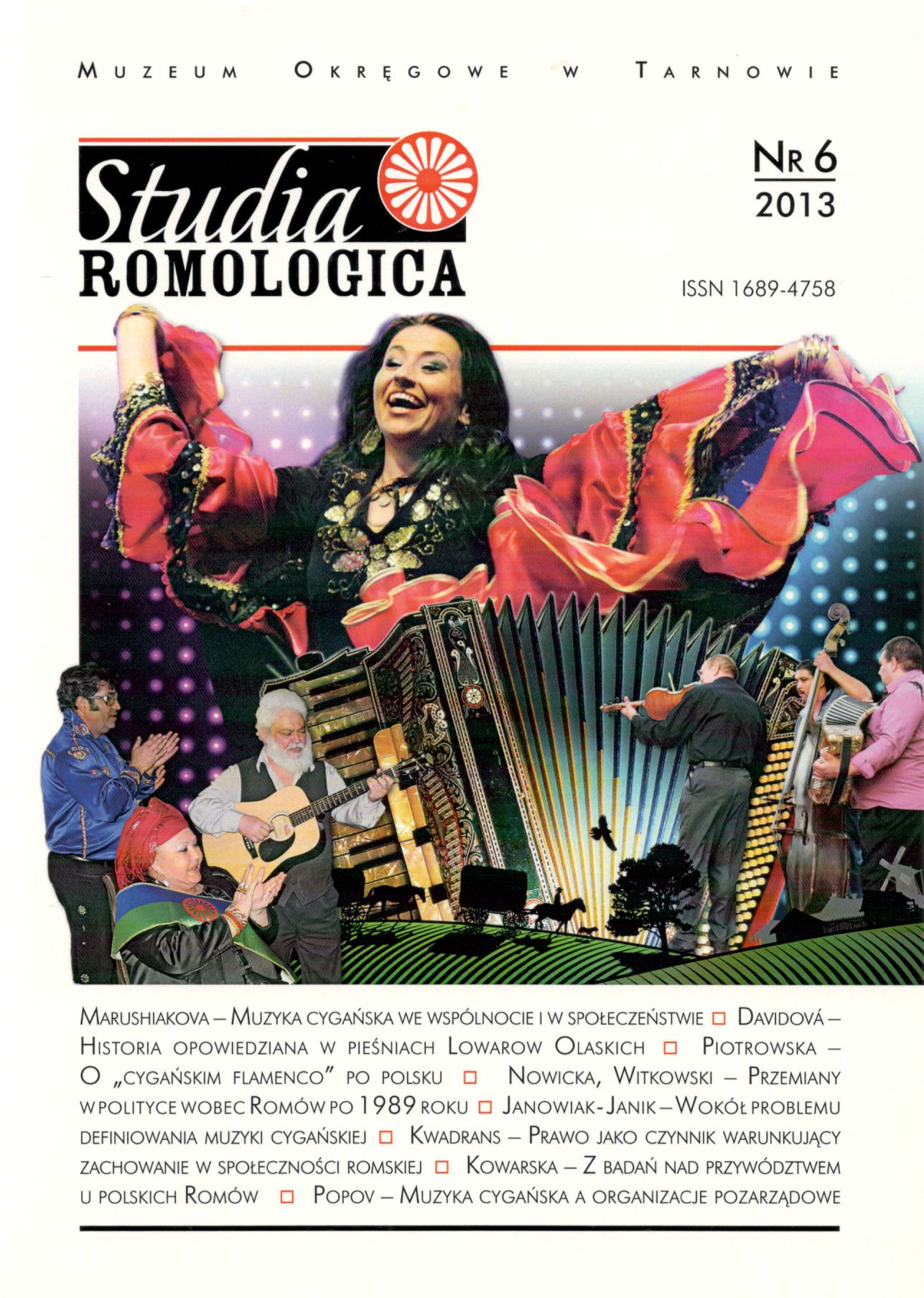
The Gypsies (Roma and other Gypsy communities) are actually an example how a people can exist in two dimensions – as a separate community/communities and as a more or less separated part of the society. Numerous researches of Romani studies scholar till now paid attention mostly on them as detached, specific community, but when speaking about ethnomusicology a paradox is observed. Main subject of majority researches are the Gypsy musicians, who serve the surrounding society, i.e. Roma are studied not so much as community, but rather as part of the society. The present article analyses the different spheres of functioning of the Gypsy music in the society and within the society and their mutual overlapping. Special attention is paid on role of the music within the Gypsy communities – in the different family (mainly during weddings) and calendar holidays, during the different rituals, in the everyday life, in different midst (family, age and/or sex restricted). On this ba¬sis the different appearances of the community identity of the Gypsies are analyzed, as well as the role, which the “Gypsy Music” (determined as such by the community itself) has on its creation and expression.
More...
The article is an overview of the Olah Romas‘ song folklore and lyrics in the former Czechoslovakia – in Bohemia, Moravia and Slovakia, where until today it has retained its active existence in an unchanged form – in particular among the group Lovari. While the music and folk songs of the Roma are relatively known, the Olah folklore in its authentic form remains rather unknown. It has been transmitted through generations in an uninfluenced form even after these societies were forced to stop being migratory by the power of the communist state in 1959. Their song folklore is differentiated in structure, forms, types and way of performance, and divided into two main groups of songs: Mulatousha, louke djila which are long, slow songs, and Khelimaske djila which are rhythmical songs to be danced to. This article examines the lyrics and content of these songs and also focuses on their specific function in the Olah society. The majority of these songs are traditionally without a musical accompaniment which increases the importance of their lyrics. The singer tells through them a story to the community to whom he dedicates the song by the way of a ritual formula – which adds to the atmosphere of the song as far as both content and rhythm are concerned. The author of the article chose ex¬amples of the lyrics from her large collection of original recordings made between the years 1956 and 1990. The texts are transcribed from the recordings in the Olah Roma language and then loosely translated.
More...
The article outlines Polish literature dedicated to the phenomenon of flamenco. An author not only presents the state of research on flamenco in Poland, but also refers readers both to the earliest and to the most popular works on flamenco functioning abroad. While analyzing Polish literature Piotrowska asks a question about general attitude of Polish authors towards the issue of ‘Gypsyness’ of flamenco and presents how Polish writers treat Gypsy roots of flamenco. The author concludes that in Polish literature – comprising a few articles and books – Gypsy connotations of fla¬menco are usually duly underlined. At the same time, Piotrowska states that Polish literature on flamenco is dominated by practical approach focusing on performantive practices (dance, instrumental play), rather than on historic or aesthetic perspective. The author stresses the absence of Polish translations of important books on flamen¬co, however she also acknowledges the role Polish Internet sites play in promoting the Gypsy aspect of flamenco phenomenon.
More...
Worse health status of Roma in comparison to the rest of the population is a fact. The basis for the change in this situation is to identify the causes of this problem. One of its manifestations is limited access to medical services. It arises primarily from cultural factors and gaps in education. Also the discrimination that they face when using health services due to lack of education. However, it relates to the insufficient knowledge of the medical staff. Because they do not know or do not understand their culture. This leads to misunderstanding and discrimination. Roma often do not accept the prophylaxis and immunization, because they do not understand their impact. Often for the best recognize conventional treatments, which are not effective. Consistent education as Roma and emergency medical services staff can change this situation. However, to compensate for the health of the Roma to the average mainstream need first of all to bring them out of poverty, provide adequate housing , integrated into the labor market. Significant reduction in the level of social exclusion will bring lasting results in the health of the population of Roma.
More...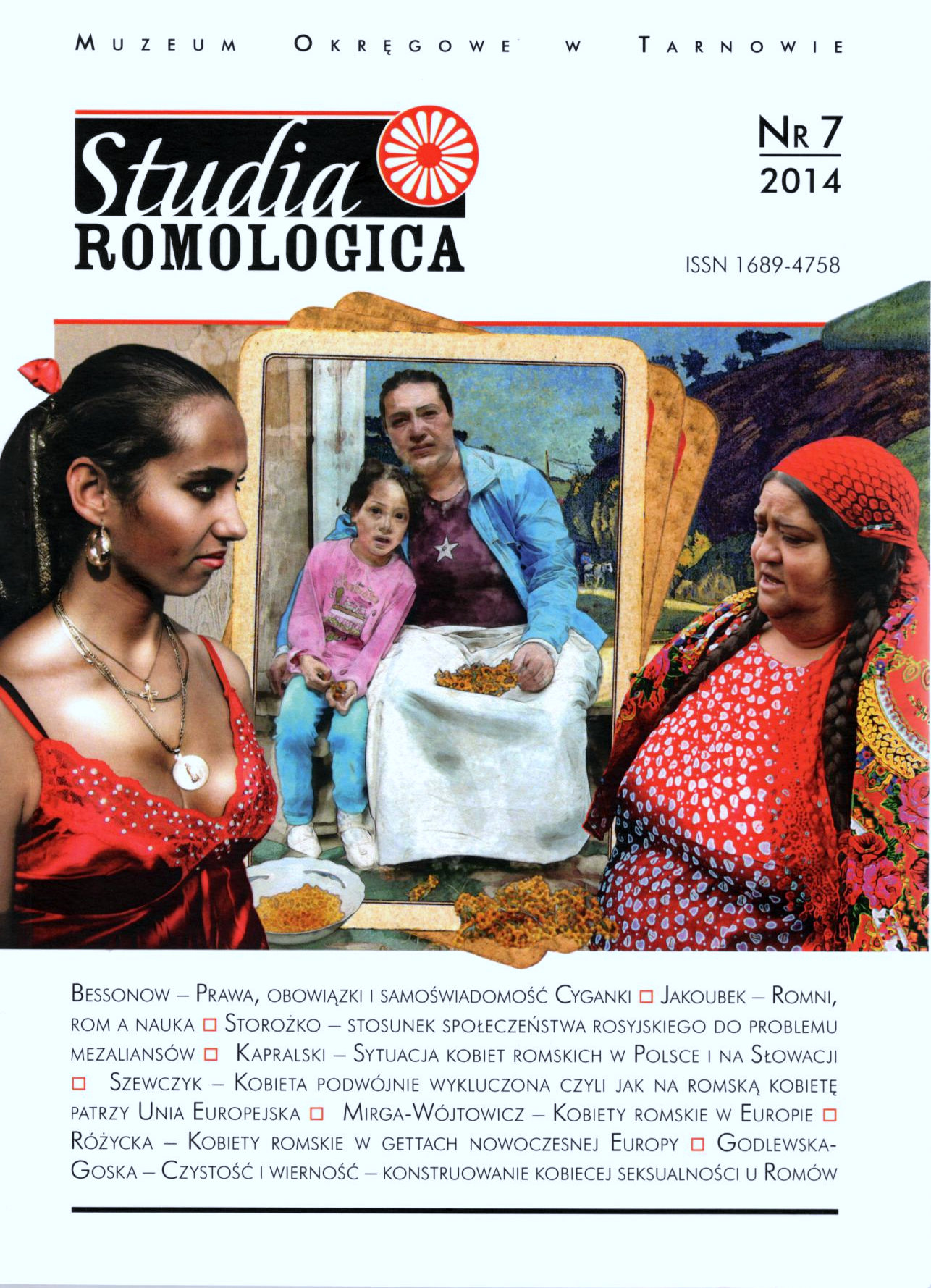
Over the last few years, the institutions of the European Union and numerous international organizations pay special attention to the situation of Roma and Sinti in Europe. Discrimination and human rights violations that face the Roma are known and widespread, but so far none of the European countries and governments worked out examples and best practices of effective protection of the members of this community. In this article, the author looks at the overall situation of Roma women, who are more likely than other women exposed to multiple, cross-sectoral, multi-layered discrimination on grounds of gender and ethnic origin, and also have limited access to employment, education, health, social services participation in civic life. This discrimination occurs in the majority society in the context of growing racist sentiment, romophobia, antiziganism, but also in Roma communities themselves. Romani women are also more likely than other women are exposed to various forms of violence, especially domestic violence, sexual abuse and trafficking.
More...
The phenomenon of Lorca’s poetry is connected, among others, with his fascination with Gypsy culture being on one hand a part and parcel of Andalusian identity, and on the other hand universal in its overall character. While referring to Gypsy folklore, and especially its musical component, Lorca managed to create his own, unique poetic idiom, becoming soon recognized as one of the world–known admirers of that ‘cursed race’. This, however, triggered certain problems already during his lifetime. In the article not only Lorca’s allusions to Gypsy mythology are presented as evident in his poetry, but also discussed is his own attitude to the Gypsy motif as well as its various interpretations by both his contemporaries and the posterity.
More...
The Czech capital hosts the 2016 European Rubik’s Cube Championship, as the cube, a Hungarian invention, comes home to Central Europe.
More...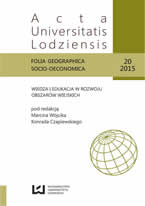
This article aims to highlight the educational aspects of the implementation ofthe Rural Renewal basing on an example of a project implemented of Nowosolna community in łódzkie voivodeship (a creation of a community center in the villageByszewy) under the Sectorial Operational Programme Improving the Processing andMarketing of Agricultural Products 2004–2006 as well as showing the experience formopolskie voivodeship. According to the author there are two aspects of education inRural Renewal. Research conducted in Nowosolna, presented in the article allows todistinguish and identify those
More...
This article is about the spatial development of Kotlin community in theminds of its inhabitants. The main goal is an evaluation of the impact of the knowledgeand experience of the local community on the perception of spatial planning itsdevelopment status. In this study, using a survey and chi-square test to researchknowledge of planning studies among residents, feeling their space, their satisfactionwith the state of spatial policy in Kotlin community and the impact of society on thedevelopment.
More...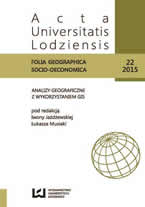
The purpose of this article is to present changes in ownership structure and functional assumptions of mansions and palaces located in the district of Sieradz. For the purpose of the work it was assumed that the study will be carried out in district of Sieradz with 35 villages in which are located mansions and palaces. Research in microscale allow more accurate analysis of the issues, permit in gathering detailed and complete data, both objective (inventory card) and subjective (evaluation of the technical condition). The task of this article is to draw attention to the value of mansions and palaces located within the district of Sieradz, because improper use of them resulted in huge losses for the cultural heritage of the region. Not only in the district of Sieradz but throughout Poland lacking awareness about value of the cultural landscape and the need to its maintenance. There is also no financial resources for their maintenance, the relevant legal provisions and respect for existing ones. In the face of occurring changes functional, let there be also a warning before the risks and appeal to take all possible protective measures until is what to protect.
More...
One man’s struggle to alleviate his symptoms helped change the country’s drug policy.
More...
In the latest move in a series of regulations on language and customs, Tajik authorities order journalists to use simpler language.
More...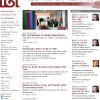
Parents’ objections to photo of a mentally handicapped first-grader allegedly results in photo album recall.
More...
Set amid stunning mountain scenery, ‘The Eagle Huntress’ follows a teenager’s dream of becoming a master of her craft.
More...
Two cases underscore the government’s hard line approach to dealing with those it believes subscribe to foreign versions of Islam.
More...
The city's first LGBTQIA march was held on Saturday, as police prevent an attack by nationalist youth.
More...